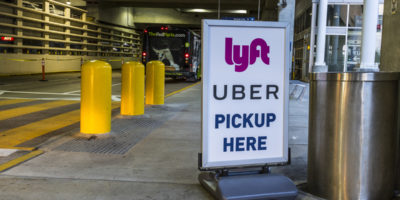
It’s said about Baltimore Ravens quarterback Lamar Jackson that he’s a particularly challenging opponent. With Jackson there’s no preparing for the run or pass; rather there’s preparing for the run, pass, along with the horrifying possibility that Jack …
READ MORE
Dictatorships or authoritarian regimes (which also tend to be economically unfree) often put a lot of pressure on their bureaucrats to develop the economy and increase output. Thus are their data positively biased.
READ MORE
Why do so many American Progressives, fearing that rich people abuse state power, aim to reduce the riches of rich people, instead of the state power that Progressives admit is subject to being abused?Why do so many American Progressives wish to put ev …
READ MORE
Taylor Swift’s case isn’t about the power of private equity or the perfect workings of market capitalism. It doesn’t fit into any existing political paradigm. It is a dispute over enforced ownership rights that have been granted to the unownable.
READ MORE
Recently talking from the Senate floor, Senator Charles Grassley (R-IA) candidly acknowledged what most AIER readers have known for a long time: politicians are influenced by special interest groups, and, in many cases, this influence prevents them fro …
READ MORE
You can have your Hulu, your Netflix, your Disney, your Amazon, your YouTube, your movies at the theater, or your dusty old books. Everyone gets to win in a vibrant market order, consumers and producers both.
READ MORE
Realizing that the ride-sharing app already had a great appeal among people in disadvantaged communities, Lyft took a step further.
READ MORE
If you want to renegotiate and ask for different terms, that should be seen as just doing business. If it works, great. If it does not, you have to choose whether to stay.
READ MORE
An idea to disrupt cloistered markets, ideologically-induced psychological barriers, and suboptimal policies through radical innovation.
READ MORE
It is time to liberate electric utility customers and bring innovation back to the once innovative electric utility industry that was pioneered by great inventors and businessmen such as Thomas Edison, Nikola Tesla, and George Westinghouse.
READ MORE
People love demographic generalization of the workplace because they simplify what is actually incomprehensibly complex. So the newest study of professional women was destined to go viral: “Women Are Less Likely to Delegate Than Men—and That Might Hurt …
READ MORE
WeWork is one of the most high profile examples of a once high-flying organization that was first humbled, and then dragged back to earth due to internal issues that eventually came to light.
READ MORE250 Division Street | PO Box 1000
Great Barrington, MA 01230-1000
Press and other media outlets contact
888-528-1216
press@aier.org
This work is licensed under a
Creative Commons Attribution 4.0 International License,
except where copyright is otherwise reserved.
© 2021 American Institute for Economic Research
Privacy Policy
AIER is a 501(c)(3) Nonprofit
registered in the US under EIN: 04-2121305